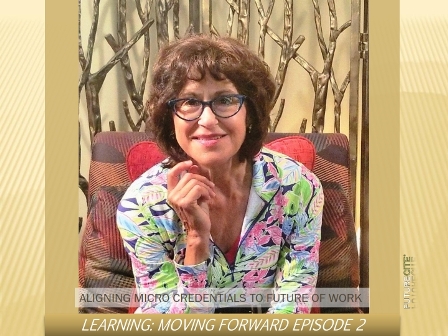
Many people during their time at home during COVID 19 have been either remote learning or remote working, or are between or out of their former work roles. They are now reflecting on their future, and rethinking their career plans to reflect their personal and work life circumstances. To move forward, they also understand that there may need to acquire new skills and training.
As an student or as a job seeker in the New Normal economy, you may want to explore the possibility of acquiring new skills that will get you to that next step – a course that maybe is a few weeks or months duration, and maybe learn part time, virtually and at your own speed.
As an employer, you may also be thinking of the talent in your organization, and how best to up skill your staff and to encourage them to attend courses, or hire new talent – to bridge the skills and training gaps for your company to be globally competitive. These courses in the past for were typically under the Faculties of Continuing Education for adult learners. These courses are now referred to as Micro Credential courses. Are these credentialed or non-credential courses, and are they recognized by educational institutes and industry?

In Episode 2, we ask Elsie to explain the differences in the types of Micro Credentials, the ways they can be recognized, and how they can accelerate and bridge the skills gap in the Future of Work.
Elsie’s Blog
The challenge for the future of work is that the pace of change is accelerating, and the skills needed are changing as well. Students preparing for a certain career path today may find that that they need to acquire new skills on graduation to maintain competitiveness. Continuous learning is necessary. Traditional credentials that have a set curriculum often take several years to implement new courses and content. The emergence of non-credit micro credentials will be the new normal. These credentials can be offered by a post-secondary institution through the Continuing Education faculty, and because the approval process is through the institution rather than a government agency, these can be offered quickly in response to the needs of business and industry. The post-secondary school can issue a “certificate of completion” to the student that can be added to that student’s CV. More than ever, an interdisciplinary approach is required so that students can customize their learning quickly and effectively. A preferred future would see post-secondary institutions collaborating to offer students just in time skills through non-credit micro credentials.
About Elsie Elford
Elsie joined MacEwan University as a full-time instructor in 1992. In addition to teaching, she was the academic chair of the Legal Assistant Program from 1993 until 2002. She was appointed Dean of the School of Business in 2002 and completed fifteen-year tenure in 2017. After returning to a faculty position, she retired in 2019 and was awarded the title “Dean Emeritus”. She led the School of Business through the transition from a college to a university. She is passionate about leadership, and mentoring students and student teams. She facilitated numerous strength-based leadership seminars for student leaders and case competition teams. Elsie received a Student Champion Award (Grant MacEwan University Student Association) in 2002, an international leadership award from the Chair Academy in 2006, was nominated as a Woman of Distinction nomination (YWCA) in 2007, and was awarded a Rupertsland Institute “Outstanding Partner in the Community in 2016”. She earned a BA, LLB and MBA from the University of Alberta. In 2018, she completed the Directors Education Program and received the ICD.D designation.




